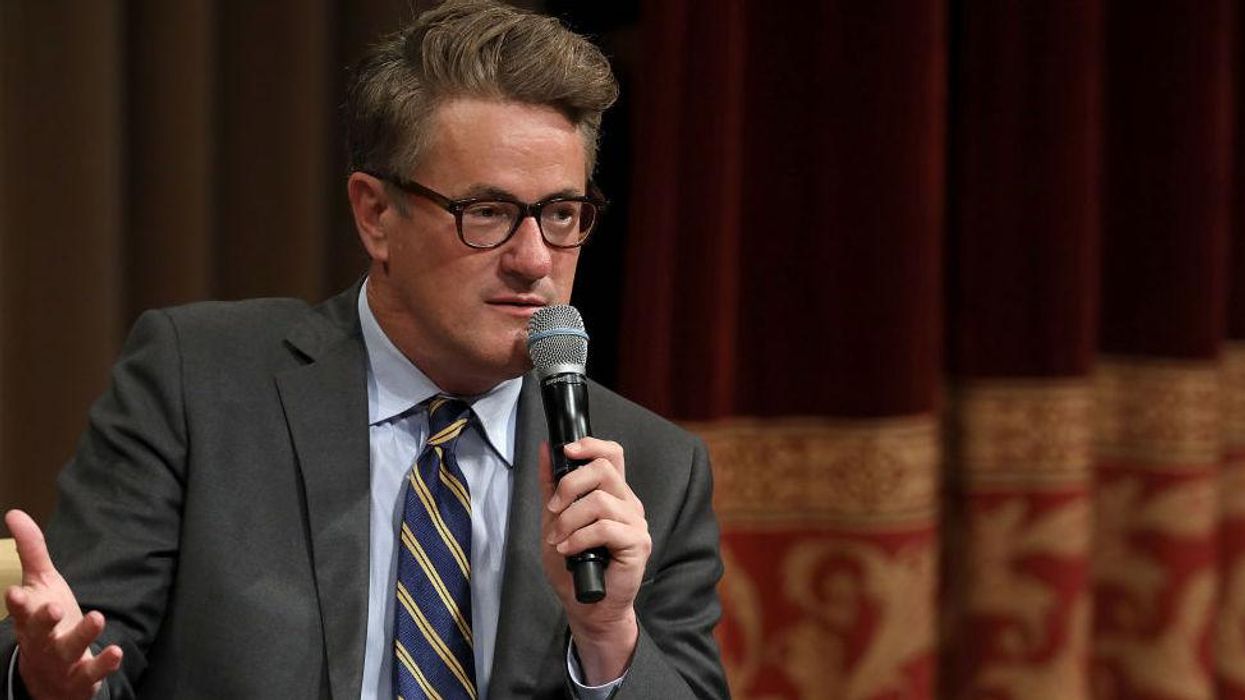
Chip Somodevilla/Getty Images

MSNBC host Joe Scarborough harshly criticized an article in the Sunday edition of the New York Times that called the disastrous Afghanistan withdrawal "our Saigon."
Scarborough's rebuke, however, did not go over as planned.
The MSNBC host was reacting to a full-page spread of an essay in the New York Times' Sunday edition that compared the moral responsibility of evacuating Afghan allies to the moral responsibility of evacuating South Vietnamese allies in 1975.
"Please don't embarrass yourself by comparing Afghanistan to Vietnam or the events of the past week to Saigon in 1975. Dear Lord," Scarborough complained.
Please don\u2019t embarrass yourself by comparing Afghanistan to Vietnam or the events of the past week to Saigon in 1975. Dear Lord.pic.twitter.com/MvSQojhzwF— Joe Scarborough (@Joe Scarborough) 1629642636
Scarborough's attempts to downplay the connections between the humiliating evacuation from South Vietnam during the fall of Saigon and the current Afghanistan crisis did not land because of who authored the New York Times article he was criticizing.
The author of that article is Viet Thanh Nguyen, a Pulitzer Prize-winning novelist who was present for the fall of Saigon in 1975.
In response to Scarborough's accusation, Nguyen both called him out for trying to score political brownie points and rebuked him for trying to silence the apt comparison.
"I'm not embarrassed @JoeNBC, because what I say is that the situations are different, except for the moral urgency in helping civilians and refugees. Either you misread or didn't read in your haste to score a point," Nguyen said.
Nguyen added, "You can be a Vietnamese American or refugee, published in the New York Times, and people still won't read what you wrote. Arundhati Roy put it best @JoeNBC: 'There's really no such thing as the 'voiceless'. There are only the deliberately silenced, or the preferably unheard.'"
I\u2019m not embarrassed @JoeNBC, because what I say is that the situations are different, except for the moral urgency in helping civilians and refugees. Either you misread or didn\u2019t read in your haste to score a point.https://twitter.com/joenbc/status/1429450939879071755\u00a0\u2026— Viet Thanh Nguyen (@Viet Thanh Nguyen) 1629673091
As Nguyen also pointed out, Scarborough's reaction indicated he likely did not read the article.
That is because Nguyen, in fact, did not draw one-to-one comparisons between Afghanistan and Vietnam, but rather emphasized the moral component of rescuing Afghan allies.
"The Saigon analogy is important because the urgency and the human disaster are similar as is the role that the United States and other nations must play to shape those fates of Afghans," Nguyen wrote in his essay.
Nguyen explained the U.S. has a moral imperative to do with Afghanistan what Congress did with Vietnam: rescue the vulnerable and accept refugees.
"In April 1975, the United States recognized its moral responsibility and evacuated about 130,000 Vietnamese people, and then accepted hundreds of thousands more from Vietnam, Laos and Cambodia in subsequent decades," Nguyen wrote. "This is what must happen now, and anything short of such a vision of responsibility and hospitality will compound the American failure in Afghanistan."
Scarborough apologized to Nguyen and explained that his criticism lay with the New York Times, not Nguyen, whose article he praised.
"My apologies. My words were not directed toward you or your moving, persuasive article. It was directed at the NYTimes editors who chose to stamp the words 'Our Saigon' on the single image dominating the front of the Sunday Review. Your piece on page 4 is a must read," Scarborough said.
My apologies. My words were not directed toward you or your moving, persuasive article. It was directed at the NYTimes editors who chose to stamp the words \u201cOur Saigon\u201d on the single image dominating the front of the Sunday Review. Your piece on page 4 is a must read.https://twitter.com/viet_t_nguyen/status/1429578676052455427\u00a0\u2026— Joe Scarborough (@Joe Scarborough) 1629677078
"I've been bothered this week by those who have tried to draw a neat analogy between the hell the Vietnamese people suffered for decades and the tragedy the Afghans are enduring now. You never did that, and I never thought you did," he added. "I've spent most of my life inspired by the lives of Vietnamese refugees and grateful for what they've contributed to America. I am hopeful that we will allow our allies from Afghanistan to do the same here in the coming years."